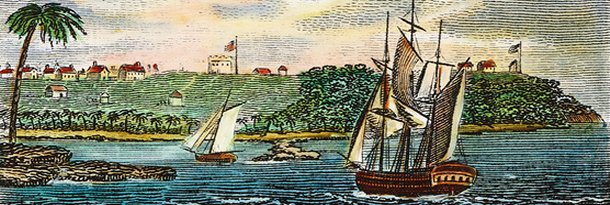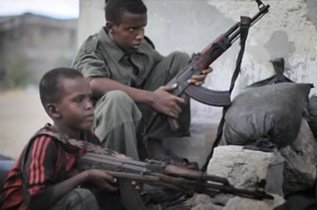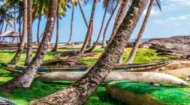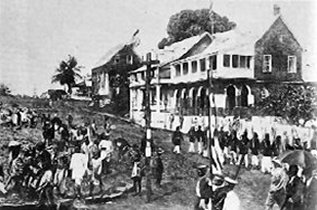|
Liberia History |
Liberia History |
Liberia History | Liberia History |
Find out all about Liberia in a series of information articles, latest daily news, videos, and images.
More >
|
|

The Golas, Kru, Kpelles and Kissi were all involved in this trade, working with the Europeans to ensnare the indigenous people into a life of captivity in the Americas. This trade continued until the abolition of slavery in the 19th century which started a debate in the USA as to what to do wth the freed slaves. Some in America observed what had been started in Freetown, Sierra Leone, by the British and concluded that the freed slaves in America could likewise be returned to Africa to start a new life. The American Colonization Society was born, not as some believed
According to the 'Niles Weekly Register' of 6th March 1824 "Resolutions were passed [at the seventh annual meeting of the American Colonization Society] "that the territory and settlement of the society near cape Mesurado, on the south-west cost (sic) of Africa, should be called Liberia, and the town laid out there should be named Monrovia, 'as an acknowledgement of the important benefits conferred on the settlement by the present illustrious chief magistrate of the United States'" ~ President Monroe.
Over 13,000 former slaves had been returned, even though many had never come from Liberia in the first place. Many were as disorientated at being in Africa as their forefathers had been when they first landed in America. Additionally, Liberia grew massively in size, very quickly bringing about its own difficulties. The American Colonization Society was dissolved in 1912. Ironically, these returned free slaves then went on to treat the indigenous population as second class citizens leading, some 150 years later, to the Liberia civil war. The video provides further details of Liberia's history and its civil war is also explored in the article also linked to above. |





 as a well motivated desire to right the wrongs of slavery, but rather, as its first meeting concluded because "Of all the classes of our population, the most vicious is that of the free colored. It is the inevitable result of their moral, political and evil degradation. Contaminated themselves, they extend their vices all around them, to the slaves, to the whites." In other words, the freed men former slaves presented a danger to American society as they had shown during their rising in Haiti and should be shipped "back home".
as a well motivated desire to right the wrongs of slavery, but rather, as its first meeting concluded because "Of all the classes of our population, the most vicious is that of the free colored. It is the inevitable result of their moral, political and evil degradation. Contaminated themselves, they extend their vices all around them, to the slaves, to the whites." In other words, the freed men former slaves presented a danger to American society as they had shown during their rising in Haiti and should be shipped "back home". The first crossing was made in 1820 however those that were then living in the Pepper Coast were none too impressed with the coming of freed slaves seeing them as Americans who were buying up their land, however the process continued and by 1847, with the American Colonization Society running out of money to continue with the project, the purchased and inhabited lands were announced as the independent nation of Liberia.
The first crossing was made in 1820 however those that were then living in the Pepper Coast were none too impressed with the coming of freed slaves seeing them as Americans who were buying up their land, however the process continued and by 1847, with the American Colonization Society running out of money to continue with the project, the purchased and inhabited lands were announced as the independent nation of Liberia.


